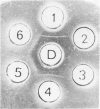Abstract
An agar-gel immunodiffusion test recommended for the diagnosis of equine infectious anemia was evaluated. Our preliminary observations confirmed those of Coggins concerning the mechanism of the test and the results obtained. Furthermore, emphasis was put on the difficulties encountered in the production of spleen antigens with an optimum amount of reactivity. Acetone-ether extraction procedures for the preparation of a liquid antigen extract are described. This type of antigen was reactive in the complement-fixation test in 1:8 or greater dilution and it is proposed to use the complement-fixation test in assessing and standardizing the liquid antigen extract activity to be used in the immunodiffusion test. This antigen can also be concentrated or diluted, if required, to meet the reactivity of a standard antigen used in the test.
Full text
PDF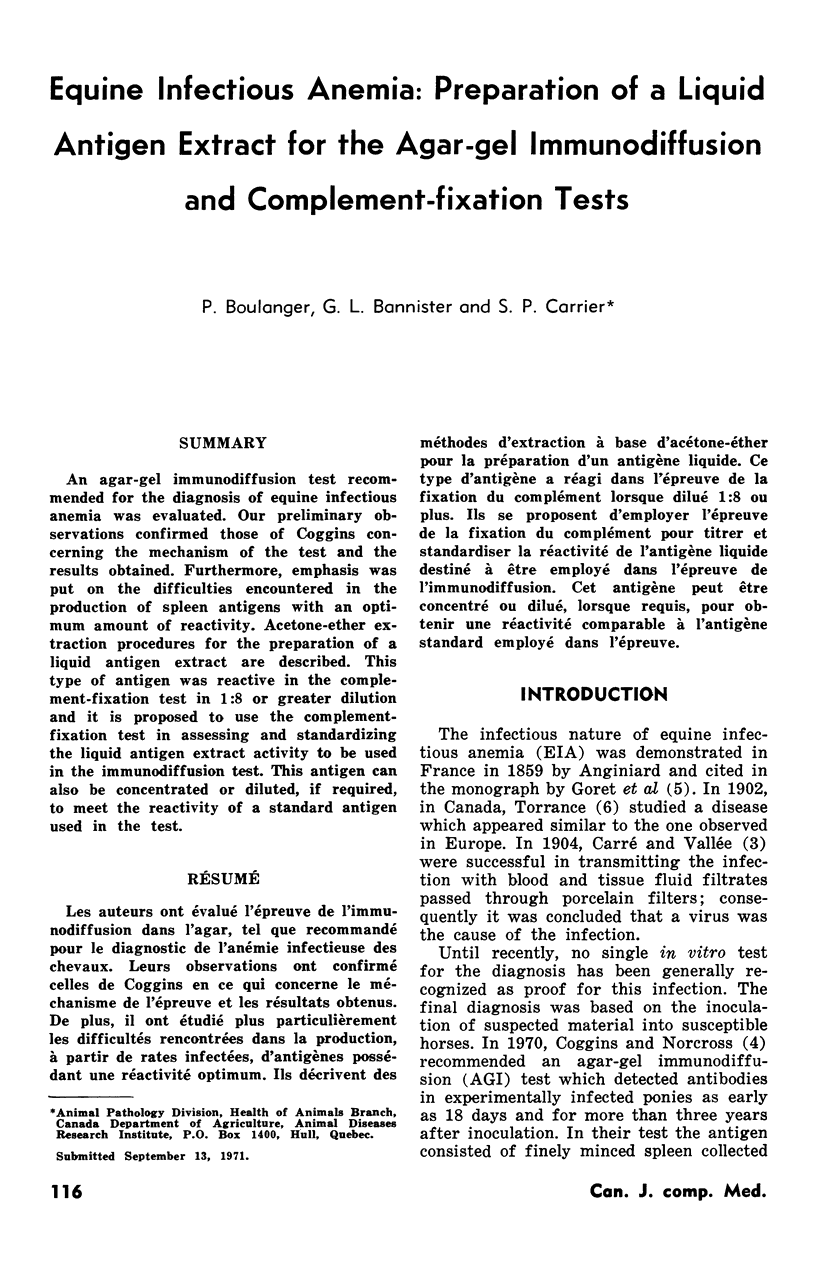
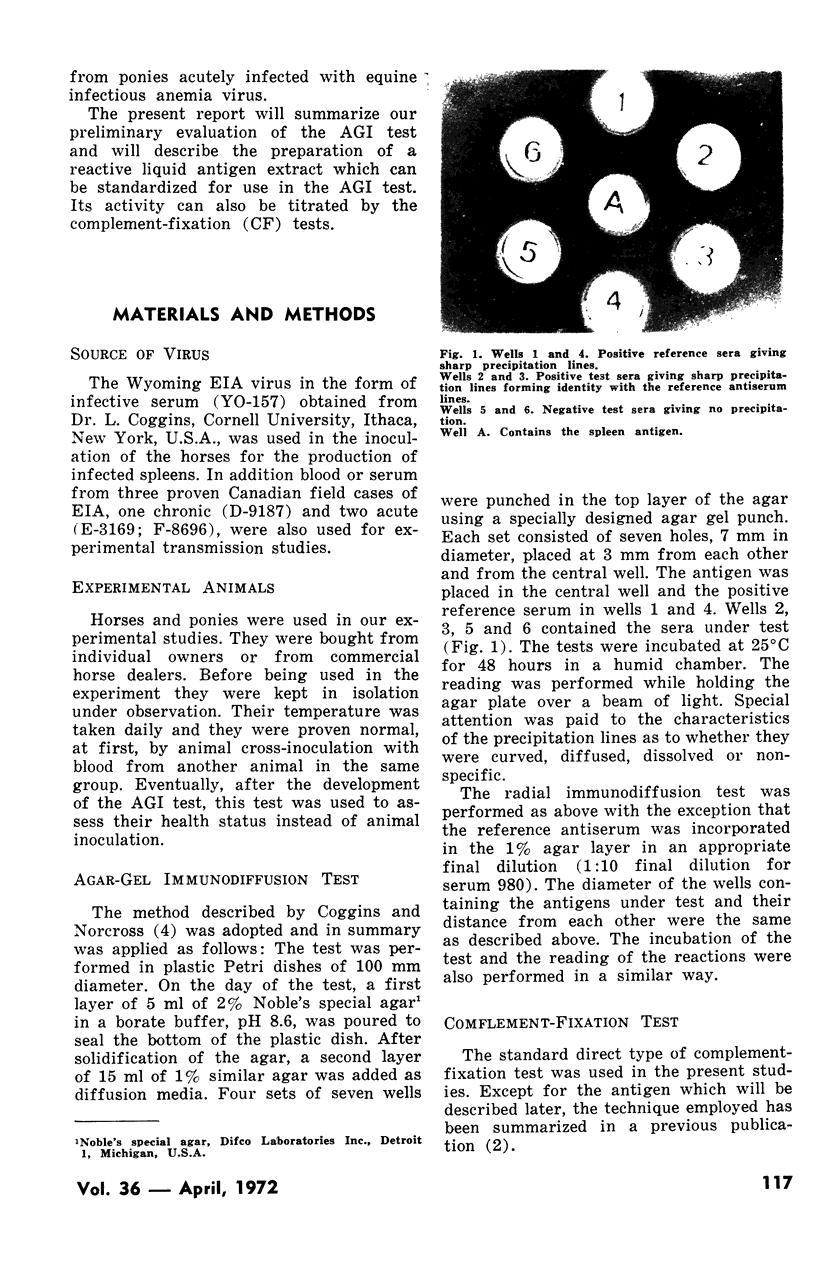
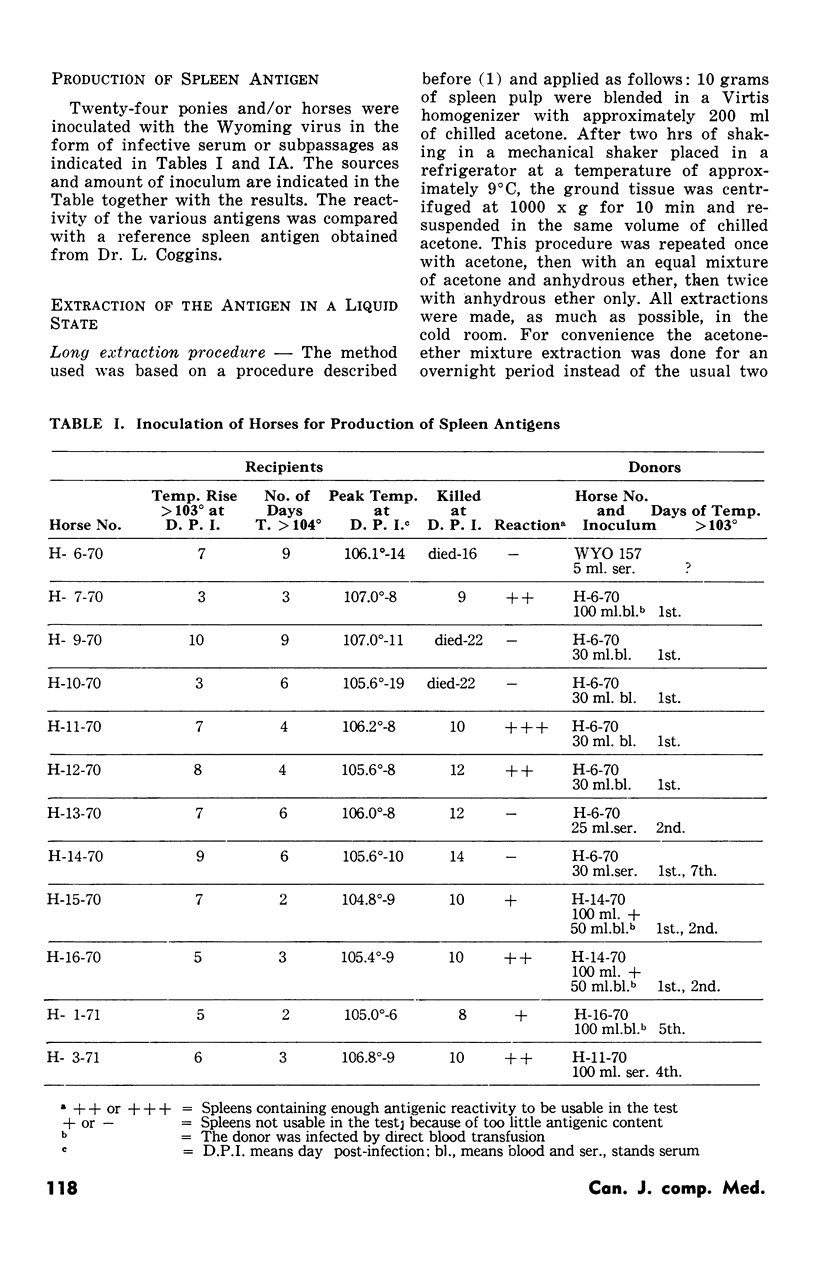
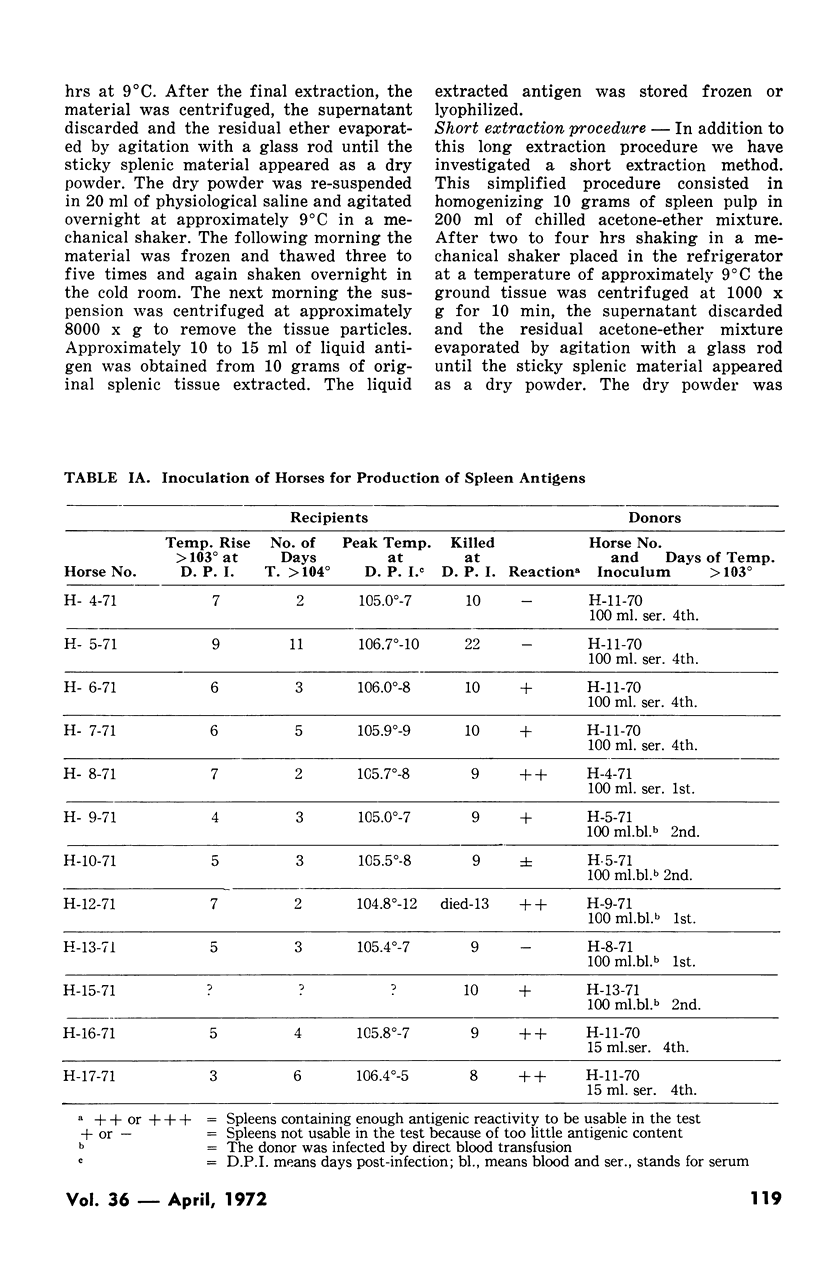
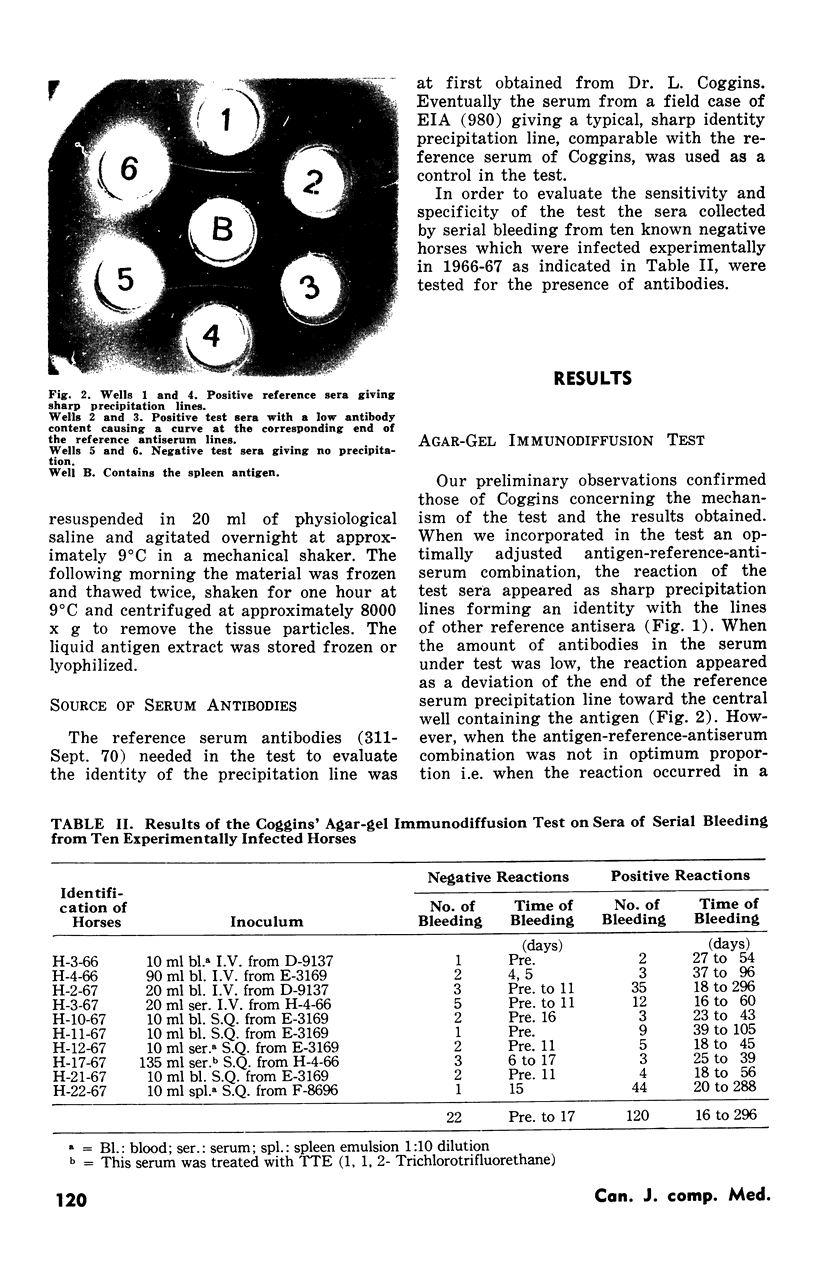
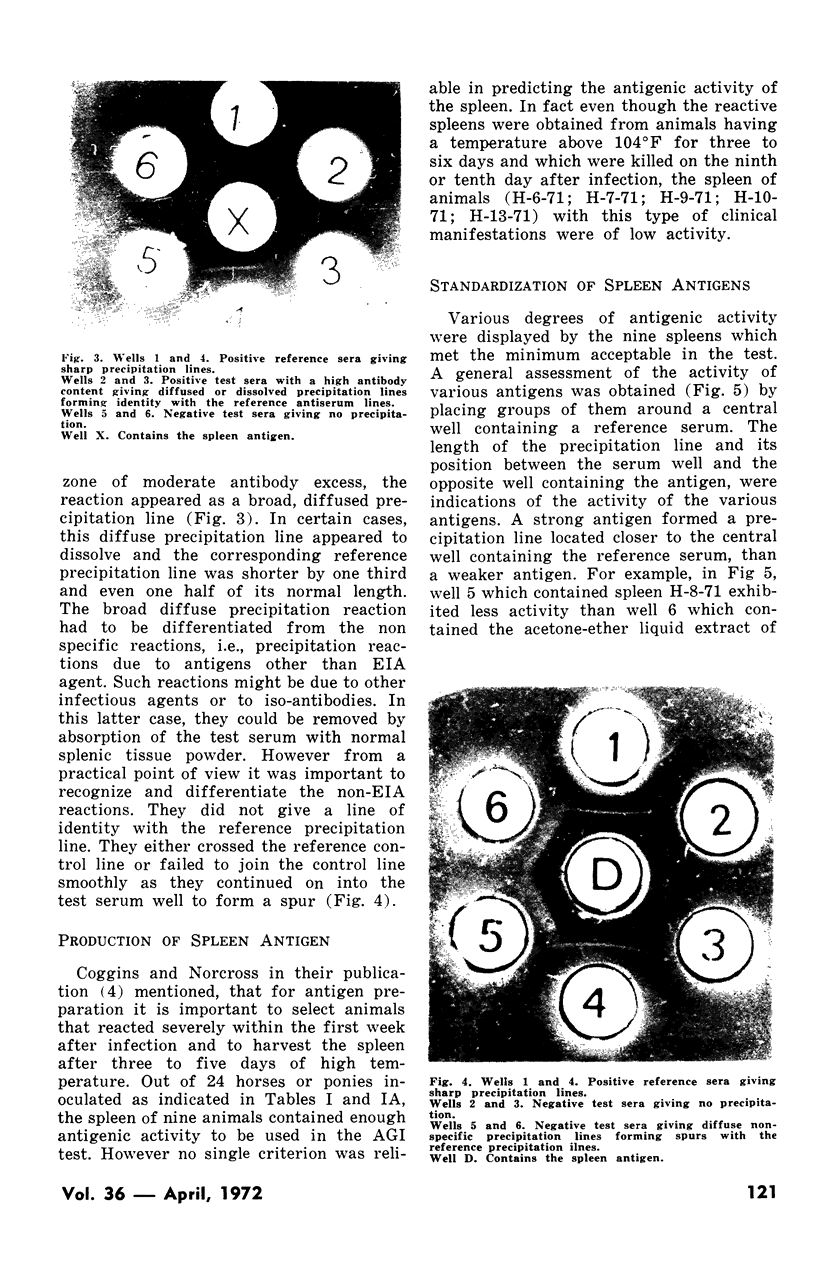
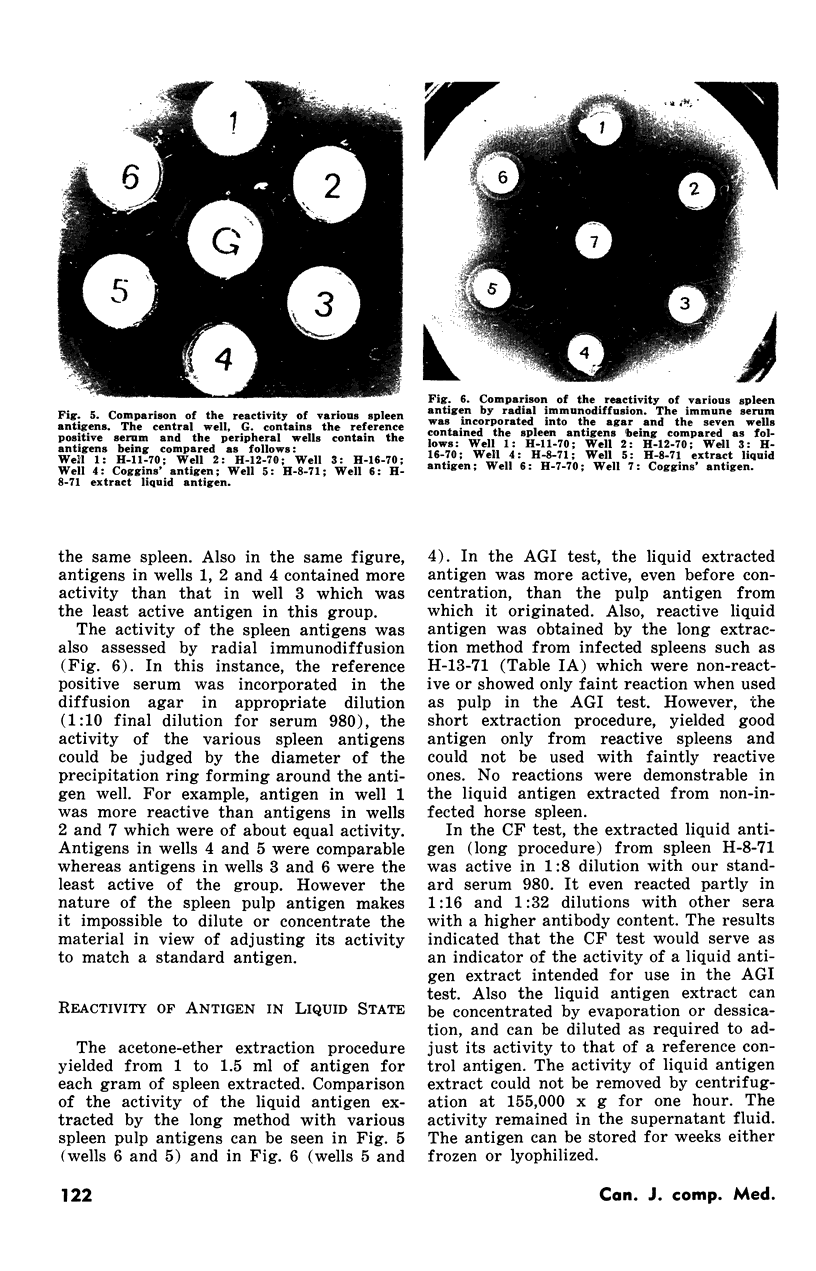
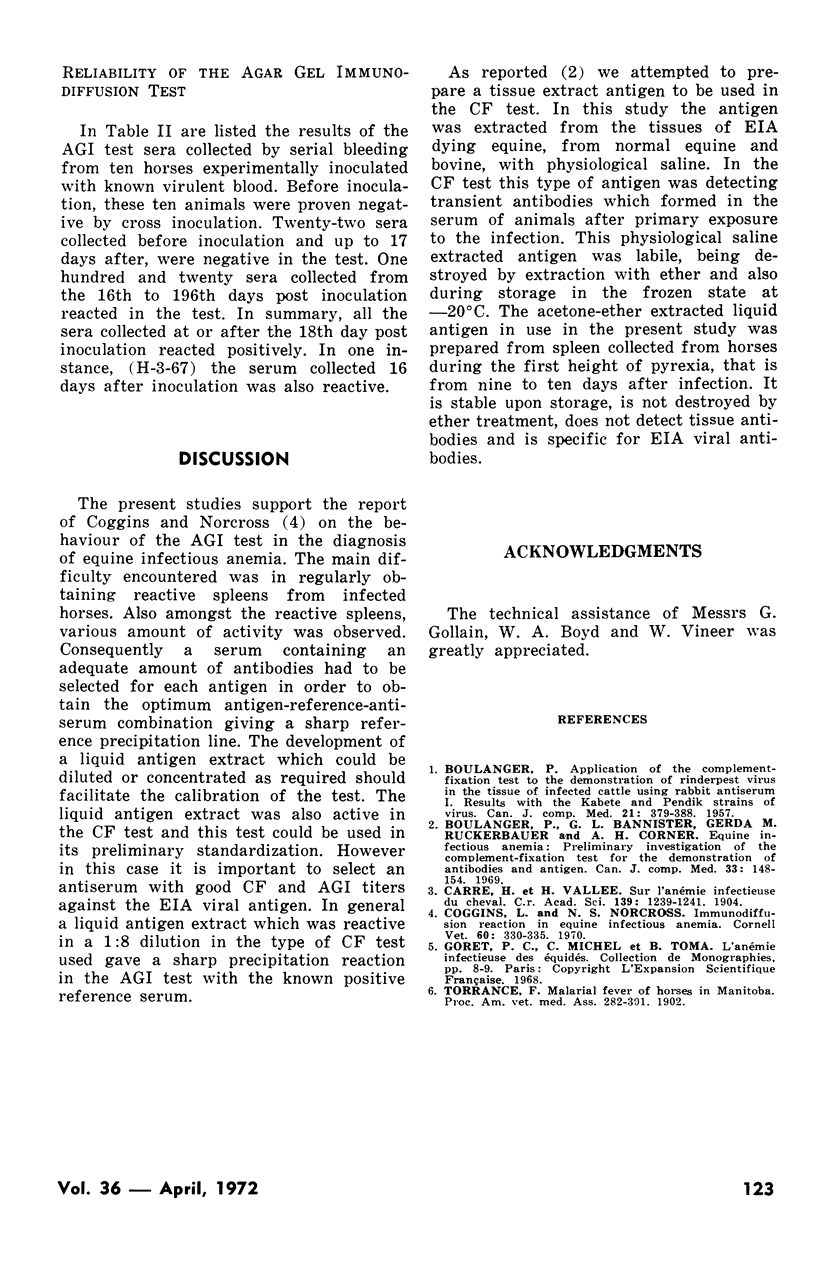
Images in this article
Selected References
These references are in PubMed. This may not be the complete list of references from this article.
- Boulanger P. Application Of The Complement-Fixation Test To The Demonstration Of Rinderpest Virus In The Tissue Of Infected Cattle Using Rabbit Antiserum. I. Results With The Kabete And Pendik Strains Of Virus. Can J Comp Med Vet Sci. 1957 Nov;21(11):379–388. [PMC free article] [PubMed] [Google Scholar]
- Boulanger P., Bannister G. L., Ruckerbauer G. M., Corner A. H. Equine infectious anemia: preliminary investigation of the complement-fixation test for the demonstration of antibodies and antigen. Can J Comp Med. 1969 Apr;33(2):148–154. [PMC free article] [PubMed] [Google Scholar]
- Coggins L., Norcross N. L. Immunodiffusion reaction in equine infectious anemia. Cornell Vet. 1970 Apr;60(2):330–335. [PubMed] [Google Scholar]






